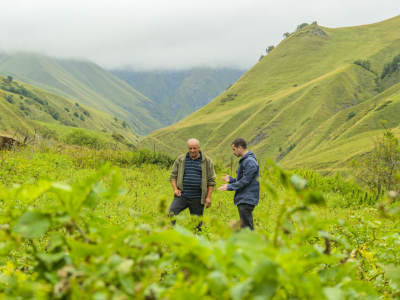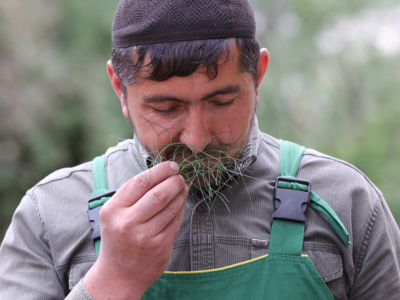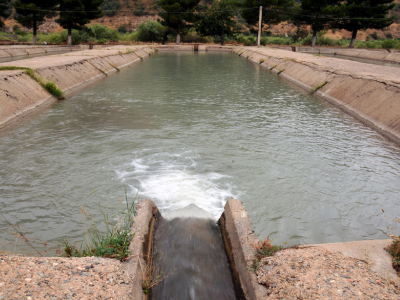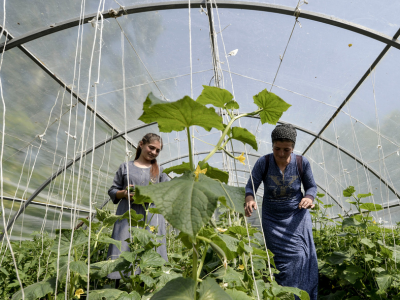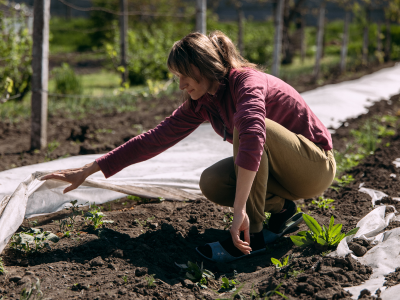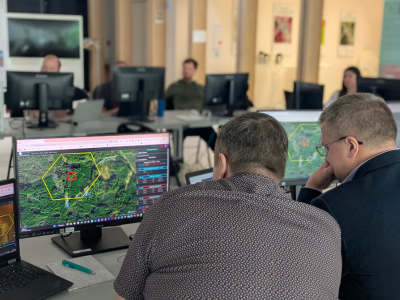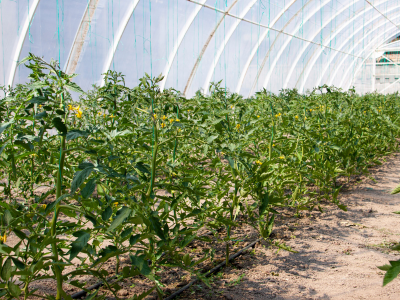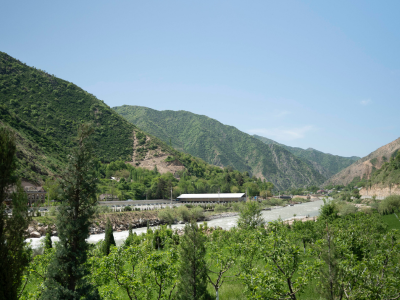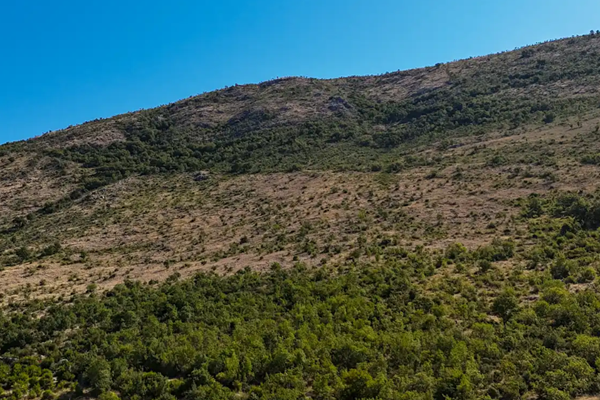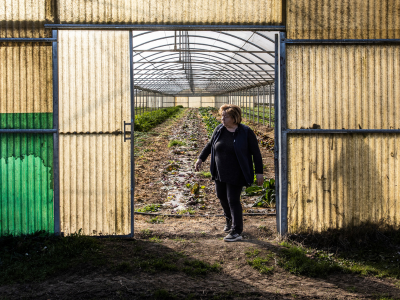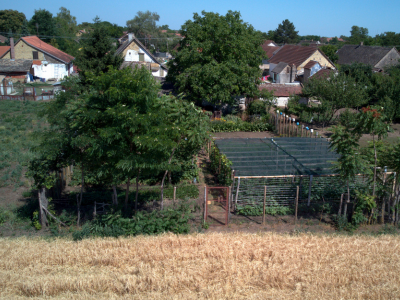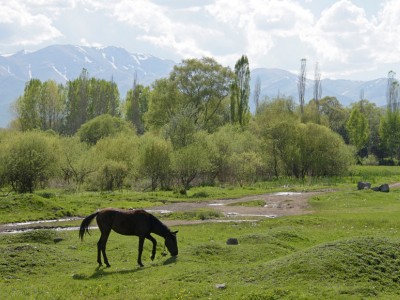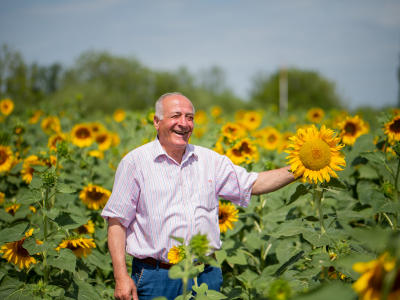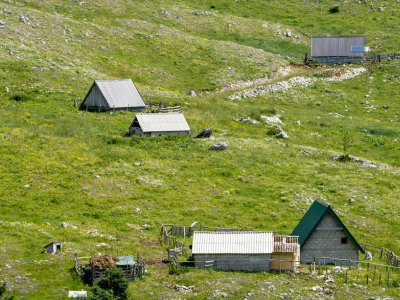This Regional Priority Programme supports Member Nations in strengthening national capacities and enhancing processes for sustainable natural resources management; adapting and mitigating climate change and reducing disaster risks in agriculture, forestry and fisheries; preserving biodiversity through natural capital investment, innovation and public–private partnerships; and reducing the environmental impacts of agrifood systems – including pollution and chemical and plastic wastes – through bioeconomy and socially inclusive and equitable approaches.
The Regional Priority Programme promotes achievement of the Paris Agreement, the Sendai Framework for Disaster Risk Reduction 2015–2030, the Convention on Biological Diversity and the Sustainable Development Goals, especially goals 1, 2, 6, 12, 13 and 15. It also contributes to the FAO Strategic Framework 2022–31 and its four betters.
The Regional Priority Programme offers a regional mechanism to assist countries in accessing climate finance, such as the Green Climate Fund (GCF) and the Global Environmental Facility (GEF), including tools and thematic support to formulate interventions at the nexus of climate change, food security, gender and rural poverty.
The Priority Programme works through three main components:
The Priority Programme leverages four FAO accelerators:
- Technology: The Regional Priority Programme promotes the most appropriate climate technologies, green technology and local knowledge to enhance evidence-based decision-making and help increase the efficiency and climate-resilience of agrifood systems.
- Innovation: The Regional Priority Programme supports countries in envisaging a new paradigm on agriculture, fisheries and forestry, helping them promote production while supporting environmental sustainability. Innovation is key to achieving this goal. This Priority Programme aims to make available science-based evidence and frameworks in collaboration with academic institutions.
- Data: To support the uptake of innovative, climate-smart technologies and policies, it is important that disaggregated data related to climate and environmental impacts be available at the national level. Data collection and dissemination are important for the deliverance of the Priority Programme’s goals across varied subjects, linking to the Hand-in-Hand Priority Programme’s geospatial platform.
- Complements: The Regional Priority Programme contributes to strengthening national and institutional capacities to develop and assess trade-offs and implement and sustain evidence-based policies and strategies for climate action, natural resources management, biodiversity and bioeconomy.
Featured news
Embedding cross-cutting themes:
- Inclusion of Indigenous Peoples, women, youth, and poor and vulnerable communities
- Regional Technical Platform on Green Agriculture
This Regional Priority Programme also contributes to the promotion of Globally Important Agricultural Heritage Systems (GIAHS), supporting the acknowledgment of traditional, highly valuable agricultural systems in the region that are examples of heritage to be preserved. The GIAHS programme recognizes these systems as outstanding landscapes of aesthetic beauty that combine agricultural biodiversity, resilient ecosystems, and valuable cultural heritage. Located in specific sites around the world, these systems sustainably provide multiple goods and services, food, and livelihood security for millions of small-scale farmers.

Events
15/8
2025
10/11
2025
Training series on ecosystem services assessment in livestock agroecosystem
15/08/2025 - 10/11/2025
The FAO Livestock Environmental Assessment and Performance (LEAP) Partnership has announced a new series of regional trainings on ecosystem services assessment in livestock agroecosystems. The activities will take place from September to November 2025.
14/7
2025
18/7
2025
Regional Training on Geographic Information System (GIS), Forest Inventories, and Open Foris Tools
(Türkiye), Hybrid Event, 14/07/2025 - 18/07/2025
Organized by the FAO–Türkiye Forestry Partnership Programme, this regional training aims to strengthen technical skills in forest data collection and spatial analysis. The training is implemented under the project “Improving Biodiversity and Sustainable Forestry (GCP/SEC/025/TUR)” in collaboration with the CBIT-Forest II Project. The training will introduce participants to Geographic Informatio...
2/9
2025
4/9
2025
Regional Planning Meeting for GEF-9 and GCF-2
Ankara (Türkiye), 02/09/2025 - 04/09/2025
The Food and Agriculture Organization of the United Nations (FAO) has been working in collaboration with the Global Environment Facility (GEF) since 2006, and with the Green Climate Fund (GCF) since 2016, towards the transformation of agrifood systems to achieve climate-resilient food systems, while addressing the complex environmental challenges inherent in this process. Both organizations pla...
17/7
2025
National training workshop on aquaculture systems design and operation
Ashgabat (Turkmenistan), 17/07/2025
Commercial aquaculture in Turkmenistan dates backs to the early 1970s when pond fish culture was introduced to the country, however, production figures indicate that production decreased significantly after the dissolution of the Soviet Union in 1991. The reestablishment of freshwater aquaculture, especially smallholder farming models, has the potential to diversify farmer livelihoods, contribu...
16/7
2025
National training workshop on aquatic animal health management
Ashgabat (Turkmenistan), 16/07/2025
Aquaculture is a diverse production sector that encompasses a wide range of culture species, environments, production systems and practices. The complex and diverse nature of the sector leads to a broad range of hazards and related risks that have the potential to impact production, food security, profitability, livelihoods and biodiversity. In this respect, disease represents one of the most s...
11/7
2025
Training on participatory and gender-sensitive forest and protected area management and community-based natural resource management
Virtual Event, 11/07/2025
This virtual training aims to build foundational capacities in participatory and gender-sensitive approaches to forest and protected area management, with a focus on community-based natural resource management. Organized under the project ‘Improving Biodiversity and Sustainable Forestry (GCP/SEC/025/TUR)’, implemented within the framework of the FAO–Türkiye Forestry Partnership Programme the...
10/10
2025
24/10
2025
43rd Session European Forestry Commission
Istanbul (Türkiye), 10/10/2025 - 24/10/2025
Created in 1947, the European Forestry Commission (EFC) is one of six Regional Forestry Commissions established by FAO to provide a policy and technical forum for countries to discuss and address forest issues on a regional basis. It meets every two years.
10/6
2025
13/6
2025
National biopesticide trial in Kyrgyzstan
(Kyrgyzstan), 10/06/2025 - 13/06/2025
From 10 to 13 June 2025, a national biopesticide trial as a part of the “Programme to improve national and regional locust management in Caucasus and Central Asia (CCA)” project will take place in Kyrgyzstan’s Chuy region as part of efforts to promote environmentally sustainable pest control solutions. The in-person event will include laboratory sessions and field demonstrations involving exper...
10/6
2025
12/6
2025
Regional Training on Climate Smart Agriculture
Bishkek (Kyrgyzstan), Hybrid Event, 10/06/2025 - 12/06/2025
As part of the “Small Farmers as Agricultural Innovators for Resilient Agrifood Ecosystems” initiative, a regional training workshop will be held in Bishkek, led by international expert Ahmed Hamdino. It will bring together 25 Farmer Field School (FFS) experts of which 20 are from Kyrgyzstan and five are from Uzbekistan. The training will cover key topics including climate-smart agriculture pri...
13/5
2025
15/5
2025
Seventh Meeting of the Technical Advisory Committee of CACFish
Baku (Azerbaijan), 13/05/2025 - 15/05/2025
The Central Asian and Caucuses Regional Fisheries and Aquaculture Commission (CACFish) is a Regional Fisheries Management Organization (RFMO) that promotes the sustainable development of fisheries and aquaculture in Central Asia and the Caucasus. FAO is responsible for the operation of the Commission Secretariat. The five Members of the Commission are Armenia, Azerbaijan, Kyrgyzstan, Tajikistan...
9/5
2025
Inception workshop: Enhanced strategic framework for Montenegro’s Agriculture, Forestry and Other Land Use sectors
Podgorica (Montenegro), 09/05/2025
Thee Food and Agriculture Organization of the United Nations (FAO) and Montenegro’s Ministry of Ecology, Sustainable Development and Northern Region Development will launch a new project from the country to enhance the strategic frameworks for the Agriculture, Forestry and Other Land Use (AFOLU) sectors and to develop the 2nd National Forestry Inventory. The project is funded by the Green Clima...
8/4
2025
Technical Workshop in Uzbekistan: Adaptation activities under the Enhanced Transparency Framework
Tashkent (Uzbekistan), 08/04/2025
Uzbekistan submitted its first Biennial Transparency Report (BTR) on 30 December 2024, in accordance with the Enhanced Transparency Framework (ETF) under the Paris Agreement. The country is advancing efforts to improve transparency in tracking climate action, particularly through the implementation of the GEF-funded Capacity-Building Initiative for Transparency (CBIT) project.
17/12
2024
19/12
2024
Speed dating consultations
Batken (Kyrgyzstan), 17/12/2024 - 19/12/2024
Within the framework of the project “Capacitated women civil society organizations sustaining peace in Kyrgyzstan”, so-called "Speed dating" sessions will be held in two rural areas of Batken district with the participation of national experts and local self-government bodies, local council deputies and residents.
25/11
2024
Opening ceremony of water reservoir
Batken (Kyrgyzstan), (Kyrgyzstan), 25/11/2024
The Batken oblast, located in the south-eastern part of the Fergana Valley, is characterized by a hot climate in spring and summer and is most...
14/11
2024
FAO Workshop: Implementing the second phase of the LDN Target-Setting Programme under the UNCCD
Bishkek (Kyrgyzstan), 14/11/2024
The workshop in Bishkek will be attended by representatives of ministries and departments related to natural resource use (land, water, forest), UNCCD representatives, international organizations and projects, academia, and non-governmental organizations. The objectives of the event are to inform participants about the implementation of the UNCCD in Kyrgyzstan, to present the second phase of th...
10/11
2024
30/11
2024
Call for innovations, solutions, and best practices to enrich the Green Practices Repository
Virtual Event, 10/11/2024 - 30/11/2024
Green Agriculture promotes a holistic approach to greening agrifood systems by adopting sustainable practices, policies, and innovations that focus on efficient use of NR, inputs, and energy, reduction of carbon emissions and pollution, preservation of biodiversity and ecosystems, sustainable consumption practices and reducing food loss and waste. It guides transformation of agrifood systems...
10/11
2024
16/11
2024
International study tour on pasture and forest management
Ankara (Türkiye), Konya (Türkiye), Eskişehir (Türkiye), Bolu (Türkiye), İstanbul (Türkiye), 10/11/2024 - 16/11/2024
The FAO/GCF project "Carbon Sequestration through Climate Investment in Forests and Rangelands in the Kyrgyz Republic" has initiated an intern...
11/11
2024
22/11
2024
FAO at COP29
Baku (Azerbaijan), 11/11/2024 - 22/11/2024
The 2024 United Nations Climate Change Conference (COP29) hosted by Azerbaijan in Baku will take place between 11-22 November. The Conference is a landmark event in the global effort to combat climate change and ensure food security for present and future generations. For FAO, COP29 serves as a platform for collaborative dialogue, knowledge sharing, and decision-making on the unique role of agr...
24/9
2024
25/9
2024
National workshop on improved pest and pesticide management in Uzbekistan
Tashkent (Uzbekistan), 24/09/2024 - 25/09/2024
With support from the project “Technical Assistance for Sound Management of Hazardous Chemicals in Uzbekistan”, an FAO workshop will focus on introducing pesticide life-cycle management, identifying gaps in current systems, and developing a roadmap for improvements. Expected outcomes include enhanced collaboration, targeted interventions, and strategies to mitigate pesticide-related risks, ulti...
25/9
2024
27/9
2024
Workshop: Advancing climate action in agriculture in Europe and Central Asia
Baku (Azerbaijan), 25/09/2024 - 27/09/2024
The three-day regional workshop “Advancing climate action in agriculture in Europe and Central Asia” aims to underscore the critical role of agrifood systems in addressing climate change and implementing climate actions. It will explore the role of the agriculture sector in achieving the goals set by the Paris Agreement, particularly in relation to sustainable food systems, gender-responsive cl...
See also:
Policy analysis of nationally determined contributions in Europe and Central Asia
Strategy for FAO’s work on climate change
Scaling up Agroecology Initiative
Building a common vision for sustainable food and agriculture
Strategic work of FAO for sustainable food and agriculture
Publication: Nature-based solutions
Contact
Tania Santivanez
Agricultural officer
20 Kalman Imre utca
H-1054 Budapest
Hungary
Tel: +36 1 8141 240

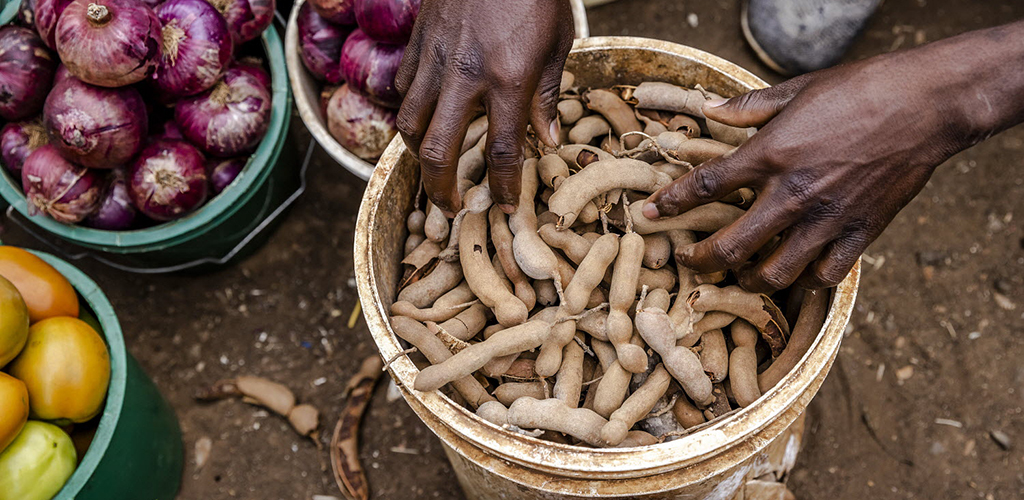
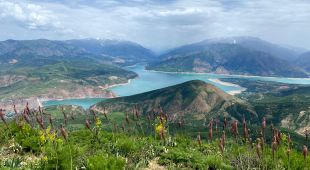
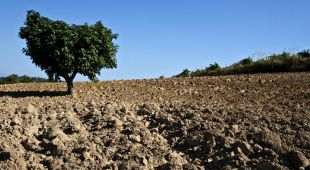
.tmb-th600x400.png?Culture=en&sfvrsn=9571a543_2)
.tmb-th600x400.png?Culture=en&sfvrsn=d076dc2c_2)
.tmb-th600x400.png?Culture=en&sfvrsn=88e127e7_2)
.tmb-th600x400.png?Culture=en&sfvrsn=e46de033_2)
.tmb-th600x400.png?Culture=en&sfvrsn=90370aff_2)

